Potrebujeme váš súhlas na využitie jednotlivých dát, aby sa vám okrem iného mohli ukazovať informácie týkajúce sa vašich záujmov. Súhlas udelíte kliknutím na tlačidlo „OK“.
ASTM F2147-01(2010)
Standard Practice for Guinea Pig: Split Adjuvant and Closed Patch Testing for Contact Allergens
Automaticky preložený názov:
Štandardné praktiky pre morča: Split adjuvans a zavrel Patch testovanie na kontaktné alergény
NORMA vydaná dňa 1.9.2010
Informácie o norme:
Označenie normy: ASTM F2147-01(2010)
Poznámka: NEPLATNÁ
Dátum vydania normy: 1.9.2010
Kód tovaru: NS-52986
Počet strán: 5
Približná hmotnosť: 15 g (0.03 libier)
Krajina: Americká technická norma
Kategória: Technické normy ASTM
Kategórie - podobné normy:
Anotácia textu normy ASTM F2147-01(2010) :
Keywords:
acute toxicity, allergenicity, biocompatibility, guinea pigs, immunotoxicity, sensitization, Cement mortars, ICS Number Code 11.100 (Laboratory medicine)
Doplňujúce informácie
| Significance and Use | ||||||
|
In selecting a material for human contact in medical applications, it is important to ensure the material will not stimulate the immune system to produce an allergic reaction under relevant exposure conditions. Extractable chemicals produced by skin contact or during physiological exposures may cause allergic reactions. Therefore, this practice provides for evaluations of solid or semisolid dosage forms using material extracts or direct evaluation of the test article. The rationale for this animal model is based on the fact that the guinea pig has been shown to be an appropriate animal model for predicting human contact dermatitis; its tractable nature, its availability from reputable suppliers, the historical database of information already acquired using this species, and the correlation of such results to data on known human allergens, all contribute to its widespread use for allergenicity studies (1-5). The need for sensitization procedures other than the maximization test (Practice F720) is based on: (1) the need for a route of exposure more similar to use conditions, (2) concern over the use of adjuvant because of its recruitment of cell types to the test site which are not typically involved in immunologic reactions, and because of the discomfort this causes in the animals, (3) absence of a proper FCA-irritant control group in the traditional maximization design, and (4) the frequency of false positives often encountered with the GPMT. Both of these tests are internationally accepted (1). |
||||||
| 1. Scope | ||||||
|
1.1 This practice is intended to determine the potential for a substance, or material extract, to elicit contact dermal allergenicity. 1.2 This practice is intended as an alternative to the Guinea Pig Maximization Test (GPMT), given the limitations on dosage form and tendency for false positives associated with the latter test. See Rationale and References. 1.3 The values stated in SI units are to be regarded as standard. No other units of measurement are included in this standard. 1.4 This standard does not purport to address all of the safety concerns, if any, associated with its use. It is the responsibility of the user of this standard to establish appropriate safety and health practices and determine the applicability of regulatory limitations prior to use. |
||||||
| 2. Referenced Documents | ||||||
|
Podobné normy:
Historická
1.3.2013
Historická
1.3.2011
Historická
1.6.2013
Historická
1.6.2010
Historická
1.3.2010
Historická
1.12.2013
Odporúčame:
EviZak - všetky zákony vrátane ich evidencie na jednom mieste
Poskytovanie aktuálnych informácií o legislatívnych predpisoch vyhlásených v Zbierke zákonov od roku 1945.
Aktualizácia 2x v mesiaci !
Chcete vedieť viac informácii ? Pozrite sa na túto stránku.


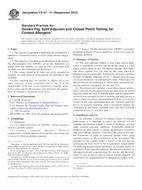
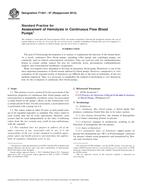 ASTM F1841-97(2013)..
ASTM F1841-97(2013)..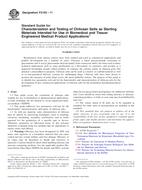 ASTM F2103-11
ASTM F2103-11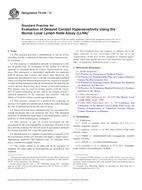 ASTM F2148-13
ASTM F2148-13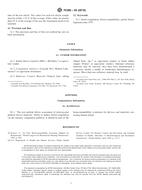 ASTM F2382-04(2010)..
ASTM F2382-04(2010)..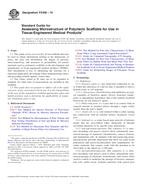 ASTM F2450-10
ASTM F2450-10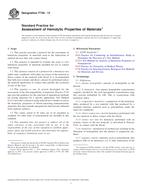 ASTM F756-13
ASTM F756-13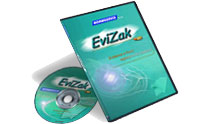
 Cookies
Cookies
